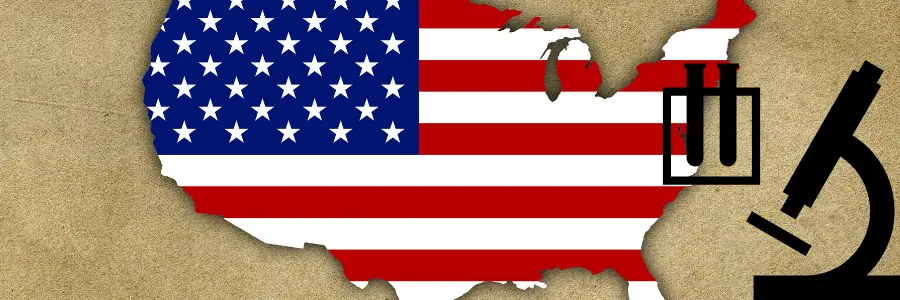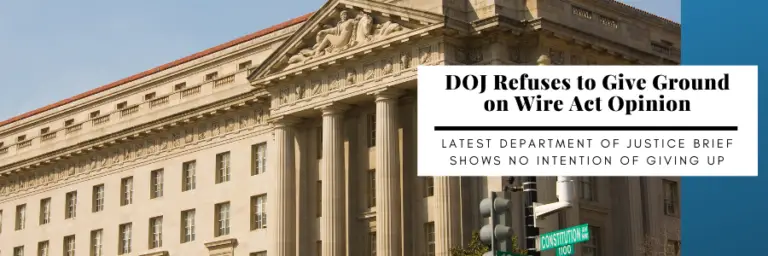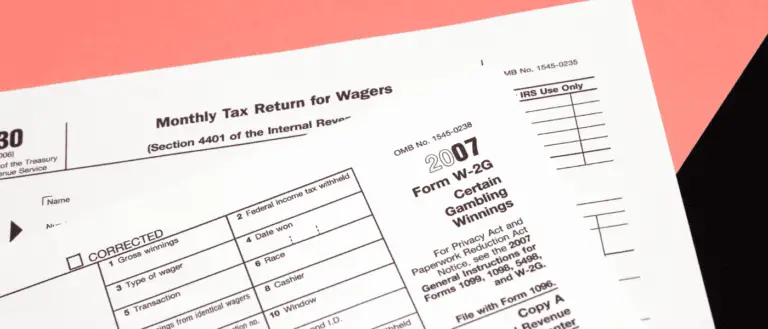States as Laboratories: Regulating Online Gambling at the State Level

When the Sports Wagering Market Integrity Act (SWMIA) was introduced at the end of last year, it sparked a theoretical debate about which government or governments were best suited to regulate the newly-forming gambling markets.
The impetus of this modern gambling renaissance, a 2018 Supreme Court decision, was certainly concerned with states’ rights, but did not weigh in on whether they thought states or the federal government were best suited to oversee governance of the new industry.
The Supreme Court’s decision in Murphy v. National Collegiate Athletic Association found PASPA, the law which prohibited states from legalizing or regulating sports betting, unconstitutional. The Court based its decision on the 10th amendment’s “anticommandeering” clause.
The anticommandeering clause of the 10th amendment prevents Congress from passing laws that would essentially “commandeer” state legislatures into doing their bidding. Without passing judgement on the merits of legalized online gambling, the Supreme Court found that PASPA’s anti-authorization provision unconstitutional and “unequivocally dictates what a state legislature may and may not do.”
Don’t get us wrong; Congress has the power to regulate gambling on a federal level and nothing in the PASPA decision reads otherwise. It’s just that PASPA was not the correct way of going about this.
Justice Alito wrote in the Murphy opinion, “Congress can regulate sports gambling directly, but if it elects not to do so, each State is free to act on its own. Our job is to interpret the law Congress has enacted and decide whether it is consistent with the Constitution. PASPA is not.”
Without further direction from Congress, states have taken it upon themselves to navigate the regulation of gambling. But recent federal stirrings, such as the SWMIA and the DOJ’s new interpretation of the Wire Act, suggest that Federal legislation is looming.
The Flight of Statewide Gambling Legislation
While we are on the subject of the 10th amendment, the words of one Supreme Court Justice, Justice Brandeis, come to mind.
In the 1931 case, New York Ice Co. vs. Liebmann, Justice Brandeis wrote in the dissenting opinion, “There must be power in the States and the nation to remould, through experimentation, our economic practices and institutions to meet changing social and economic needs.”
In the spirit of this experimentation, Brandeis may have supported the current Supreme Court’s striking down of PASPA. As to the question of whether states or the federal government should oversee such regulatory experimentation, Brandeis offered:
It is one of the happy incidents of the federal system that a single courageous State may, if its citizens choose, serve as a laboratory; and try novel social and economic experiments without risk to the rest of the country.
This brief excerpt from the 1931 opinion would give way to what legal scholars now call the, “States as Laboratories of Democracy” theory. Applied to the new legislative environment of gambling, proponents of this theory would argue that individual states should undergo the tough decisions about which gambling policies to put in place.
The decades long federal ban on gambling operations, save a few exceptions like Nevada, the impact of legalized gambling is truly unknown. Why not allow states to decide whether or not they want to experiment with the benefits and implications of increased gambling operation?
In all fairness, any new federal regulations would likely allow states to opt out of authorizing any type of gambling within their state. Where the ‘States as Laboratories’, really comes in, is for the search for optimal regulations.
New federal governance would surely impede on the states’ ability to fine tune their regulations to how they see fit. This would be a missed opportunity for the nation as a whole to get a better understanding of the implications of more types of laws and regulations. Rather, if federal legislation is passed, we will all sink or swim based on the actions of Congress.
Pros and Cons of Statewide Regulations
The American Gaming Association voiced a similar concern when the SWMIA was introduced.
“This bill is the epitome of a solution in search of a problem, representing an unprecedented and inappropriate expansion of federal involvement in the gaming industry, which is currently one of the most strictly regulated in the country,” said AGA Senior Vice President of public affairs, Sara Slane.
“Across the country, nearly 4,000 dedicated public servants already regulate all forms of gaming, including sports wagering, with more than $500 million committed to ensuring the integrity of commercial casinos’ operations and $822 million spent on regulation of tribal gaming in 2015 alone,” Slane added.
These state and tribal regulators have decades of experience effectively overseeing gaming operations within their jurisdictions. AGA’s website reads:
While federal regulation of sports betting will continue to be a non-starter for the gaming industry, we appreciate the sponsors’ recognition that more must be done to curb illegal sports betting operations, which continue to pose the biggest impediment to the success of a legal market that will benefit and protect consumers, sports leagues and casino operators alike.
Raymond J. Lesniak, a former state senator in New Jersey and major contributor in the effort to overturn PASPA, echoed such reluctance towards federal regulations, saying, “We strongly believe in a regulatory body in conjunction with other states, and believe that could work much better than the federal government taking over the reins.”
One argument for new federal legislation is that the gambling industry’s reliance on the internet makes the whole operation a nation-wide affair. As information via the internet is usually routed all over the country through intermediate transmissions, keeping gambling within the physical boundaries of a state is increasingly complex.
But, to put all types of gambling under the federal government’s purview just because of the unintended and largely inconsequential effects of interstate transmissions is a bit of a stretch. One group of stakeholders that overwhelmingly supported the SWMIA were the leagues.
The NFL called it “common-sense legislation.”
The PGA Tour said it believed national standards “are the best method of protecting the integrity of our competitions and our fans.”
The MLB recognized “the important role of the federal government in ensuring safe, fair and transparent sports betting.”
The NBA said the league remains “in favor of a federal framework that would provide a uniform approach to sports gambling…”
Meanwhile, the NCAA applauded the bipartisan efforts of SWMIAs authors. As established national entities, it makes sense why Leagues would want one set of regulations to rule them all.
Looking Back While Moving Forward
President Trump was a frequent advocate for states’ rights on the campaign trail but lately many are questioning his commitment to the 10th amendment and his relationship with Sheldon Adelson. The DOJ’s recent expanded interpretation of the Wire Act shows the executive branch’s eagerness to regulate new gambling sectors.
At the very least, the DOJ’s new interpretation of the Wire Act has created enough uncertainty that any decisive federal action is looking better and better as the days go by.
“All forms of gaming have historically been regulated at the state level,” Mr. James Kilsby, Managing Director of Gambling Compliance. “I think you’re going to see the gaming industry be extremely reluctant to bend on that issue.”
Such state reluctance has recently found success in the New Hampshire District Court. Given this experience, and the myriad of different results that would be produced by statewide legislation (results that could later be learned from and build upon), perhaps States would provide for better laboratories of this social and economic experiment we call gambling.
Tania brings over 10 years of experience as a gambling industry reporter to BettingUSA.com, providing frequent news coverage and coverage of current events.






